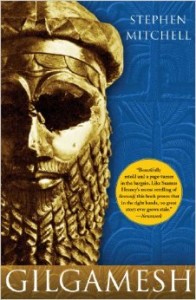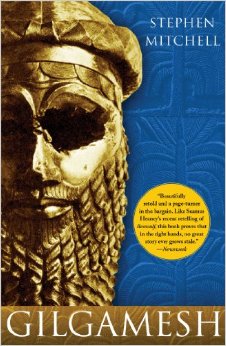 Gilgamesh: A New English Version
Gilgamesh: A New English Version
Translated by Stephen Mitchell
Free Press. 290 pages, $24.
GILGAMESH IS the first significant work of literature in history—not Western history, but all of history—an epic that was first written down (ca. 2100 BCE) over a thousand years before The Iliad and The Odyssey or the Bible. And it happens to have a strong homoerotic and even homosexual element at its very core, a relationship between two heroes, Gilgamesh and Enkidu. The former is king of the Babylonian city of Uruk, a giant among men who’s two-thirds god and uses his power to oppress his longsuffering subjects, mostly through his insistence that all brides submit to him sexually before going to their new husbands; the latter is a kind of proto-man who lives and eats with the animals he tends before being civilized, rendered fully human, through sex with a high priestess and high adventure with the king. The epic is about how Gilgamesh is transformed through his friendship with Enkidu and their journey to the world’s edge, and how he returns to Uruk a better, more humane—and more human—king.







